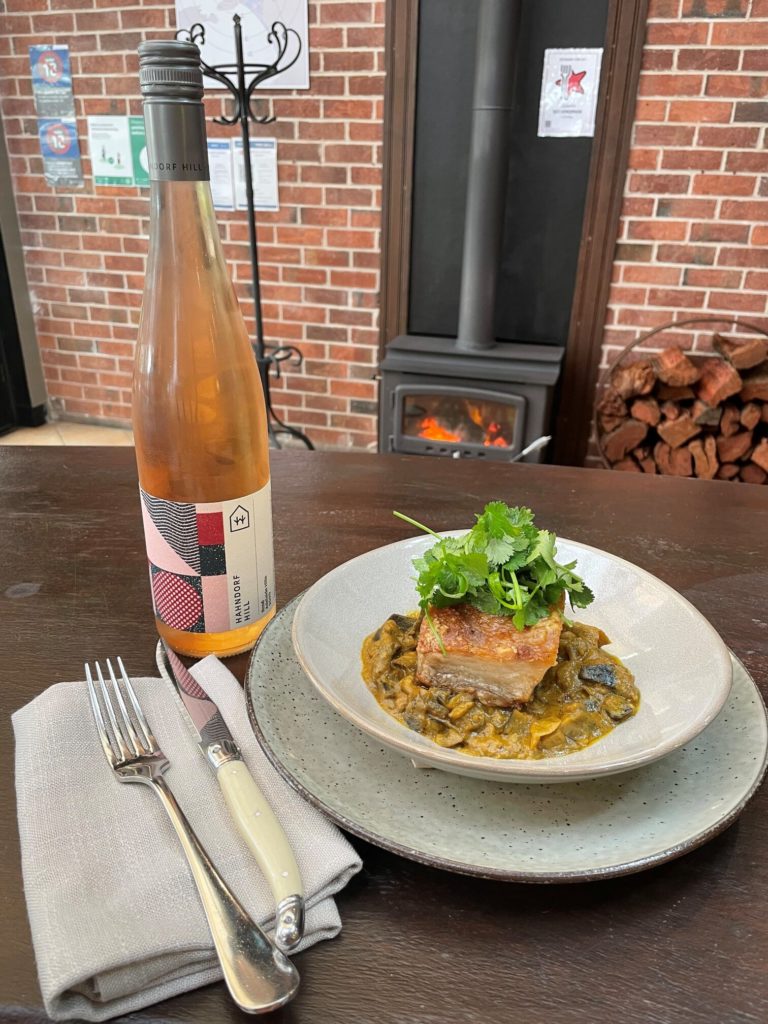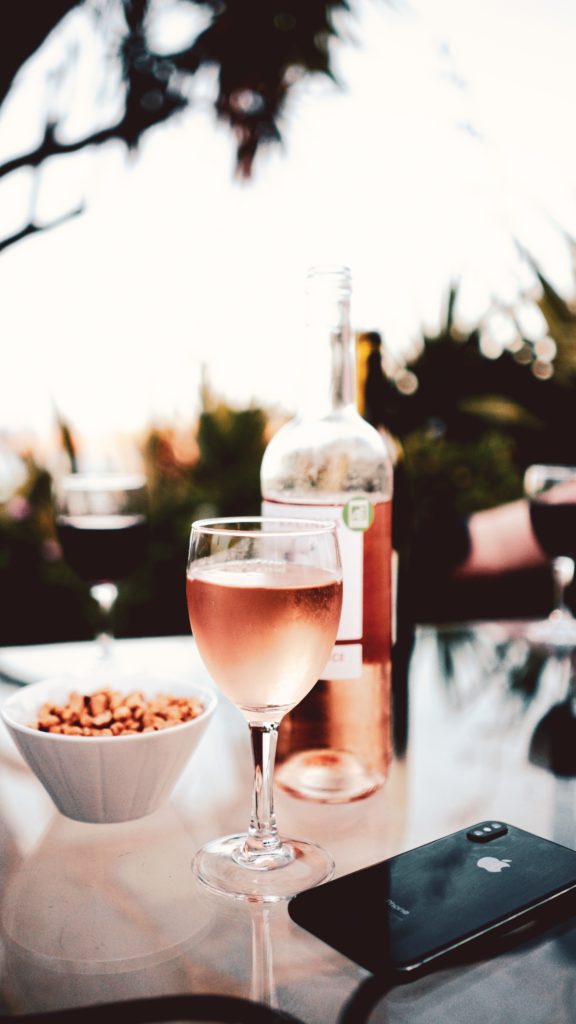
As we in the Adelaide Hills enjoy our bracing winter dawns, I cannot help but think upon the hundreds of little shifts we make in almost every facet of our lives with the change of the seasons. Some obvious and necessary, others habitual or culturally instinctive. Our wardrobe, sporting obsessions and in my case, bedtime, will vary throughout the year according to the elements, TV schedules and primal ancestral rhythms.
But why in these days of plenty and convenience do we consciously or otherwise, apply changes we don’t have to? For example, why at the peak of daylight savings do we not retire early with a book? Who among us commits wholeheartedly to a spring clean as the verdant canopies wane? And why, as the smell of woodsmoke once again fills the night air, do we turn our backs on a fair-weather favourite, Rosé?
Summer in Australia is a time heavy with stereotypes; deepening tan lines, blaring cricket commentary, smoking BBQs and increasingly, Rosé. Gone are the days of beer and bubbles reigning supreme at every summer soirée. The last decade has seen Roé sales go through the roof; and the pale, dry, savoury style that is synonymous with the Adelaide Hills has been in the vanguard of this insurgency. Yet, many can overlook their much-loved Rosé during the long cold months of winter.
The dining tables of an Australian household in winter rejoice under the weight of heavy, dry reds: Shiraz, Cabernets and GSM’s have sat at the right hand of Australian drinkers for generations. Old habits may die hard; but I have committed myself to work towards a world where Rosé is relished, embraced and fought over at our dining tables all year round, including during our dark and stormy winters.
I believe that the dry, pale and savoury styles of Rosé are easy to enjoy with our winter comfort foods, and to prove it I have selected two of my favourites that positively sing with fireside fare.
The Umathum family established their original ‘mixed farm’ near Lake Neusiedl in Austria’s red-wine state of Burgenland in the second half of the 18th century – and they have been growing grapes ever since. In the 1980s viticulture became the family’s sole focus and current custodian, Josef Umathum, took the reins in 1985.

A passion for the region’s signature varieties and a commitment to putting the needs of the land first, have seen Umathum recognised at the highest levels both domestically and on the international stage. Josef believes that the journey is as important as the destination; in order to create wines of style, character, elegance, structure and length, one must ‘always be awake in order to recognise nature’. This mantra goes hand in hand with the intellectual and creative to form the connection with the land which all informed winemakers find essential.
The 2019 Umathum Rosa is a blend of the region’s three most famous sons: Blaufränkisch, St. Laurent and Zweigelt, which are sourced from vineyards around the villages of nearby Frauenkirchen to the west and Jois to the north. Both sites are rich in quartz and primordial shell limestone; this mineral foundation and the region’s famously Pannonian influenced weather combine to birth fruit that is clear in voice and full of purpose. The 2019 Rosé is ruby garnet in complexion and of exceptional crystalline clarity. The colour is more pronounced than what Australian lovers of dry rosé are used to, but I implore you to stay the course. Rhubarb, black cherry and white pepper star in a generous but elegant palate that is unexpectedly dry, and these are sublimely framed by an acid line that perfectly guilds this heart-warmingly delicious wine.
The plush crimson fruit and brilliant acid will cut through, clean up and complement a rich lamb shank on a bed of creamy Parisian mash, a flakey steak and mushroom pie with blanched broccolini, and will raise the spirits of every Irish stew lover. Classic winter dishes that can both heal and hearten and still be yet further enhanced by a wine that can credibly defy all seasonal bias.
Until relatively recently, the Australian Rosé scene was dominated by the jammy Alicante and Shiraz examples from the Barossa and the ‘strawberry and cream’ Grenache styles from McLaren Vale. These wines were, and still are, popular with younger drinkers and those with a sweet tooth, but have no doubt helped to reinforce the summery image that has restricted the category as a whole.
In contrast, the Adelaide Hills has largely looked to lighter varieties such as Pinot Noir for its Rosés and the most successful have taken inspiration from the pale and savoury Provencal school. Herein lays our great advantage at the table; this signature Adelaide Hills style pairs with a much broader range of cuisine.
The 2020 vintage was a trial for the Adelaide Hills; almost every winery suffered a body blow. Total production was significantly down across the region but what fruit survived the assault of the fires in January fortified the soul and reminded us why we have chosen such a precarious life. The parcels of fruit that were spared were so delicious and full of promise we doubled down in spite of the difficulty and persevered.
We at Hahndorf Hill have always been devotees of dry, spice-driven and savoury Rosé, long before it was fashionable. The Germanic grape, Trollinger, has always taken centre stage in the Hahndorf Hill Rosé; its signature pomegranate and quince characters have over the years been complemented by other classic Adelaide Hills red varieties to create a chorus of spice, cherry and savoury baked red apple.
What makes the Hahndorf Hill Rosé an especially effective weapon at the dining table is its subtle rub of texture; this physical element helps to mechanically cleanse the palate, heightening a diner’s ability to better enjoy each mouthful of food.
Pale watermelon juice in colour and with a nose of subtle pink musk, white spice and pomegranate, the 2020 Hahndorf Hill Rosé makes the perfect tablemate for spicy curries, rich pork dishes, grilled white fish, and hearty vegetarian cuisine. All of which make regular appearances on my winter dinner table.

I invite you to join me. Let’s fight together for a dining table free of seasonal formality, habitual conventionalism and tradition for tradition’s sake. Let us rebel and raise a glass of Rosé when the winter wind howls and the hearthstone beckons!
Prost, Jack.


